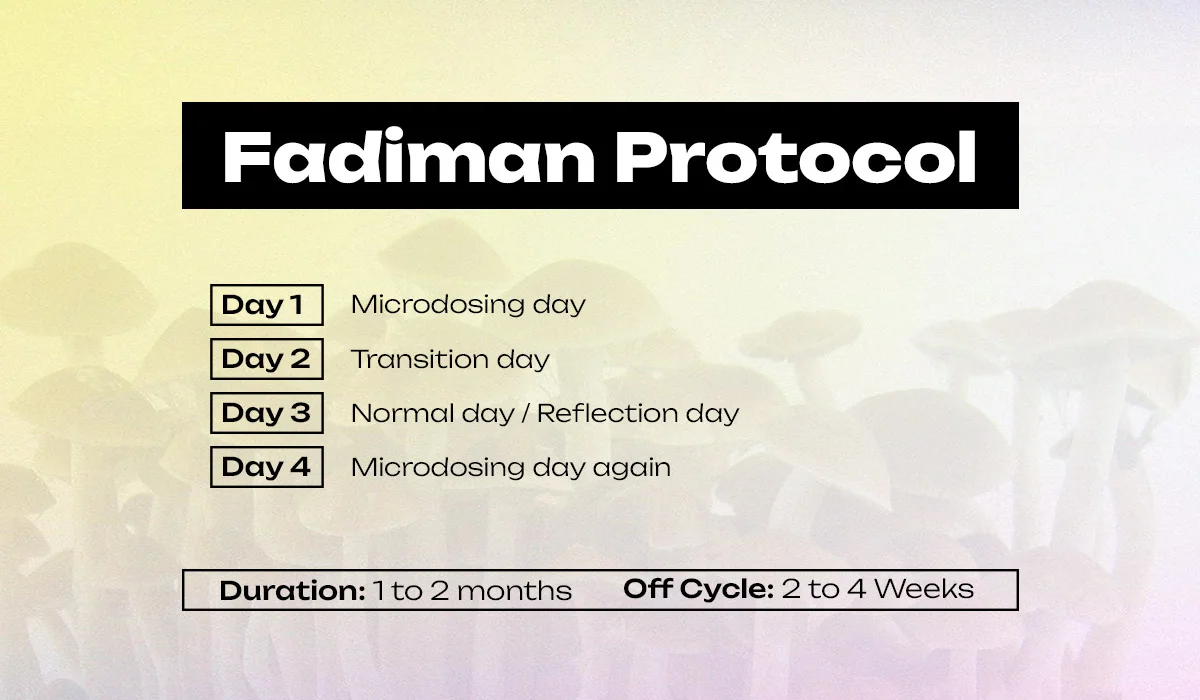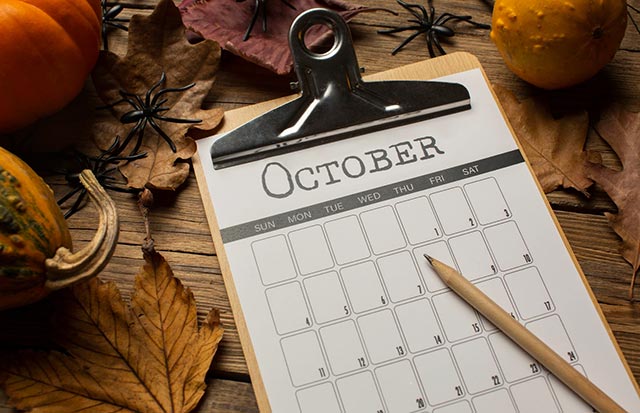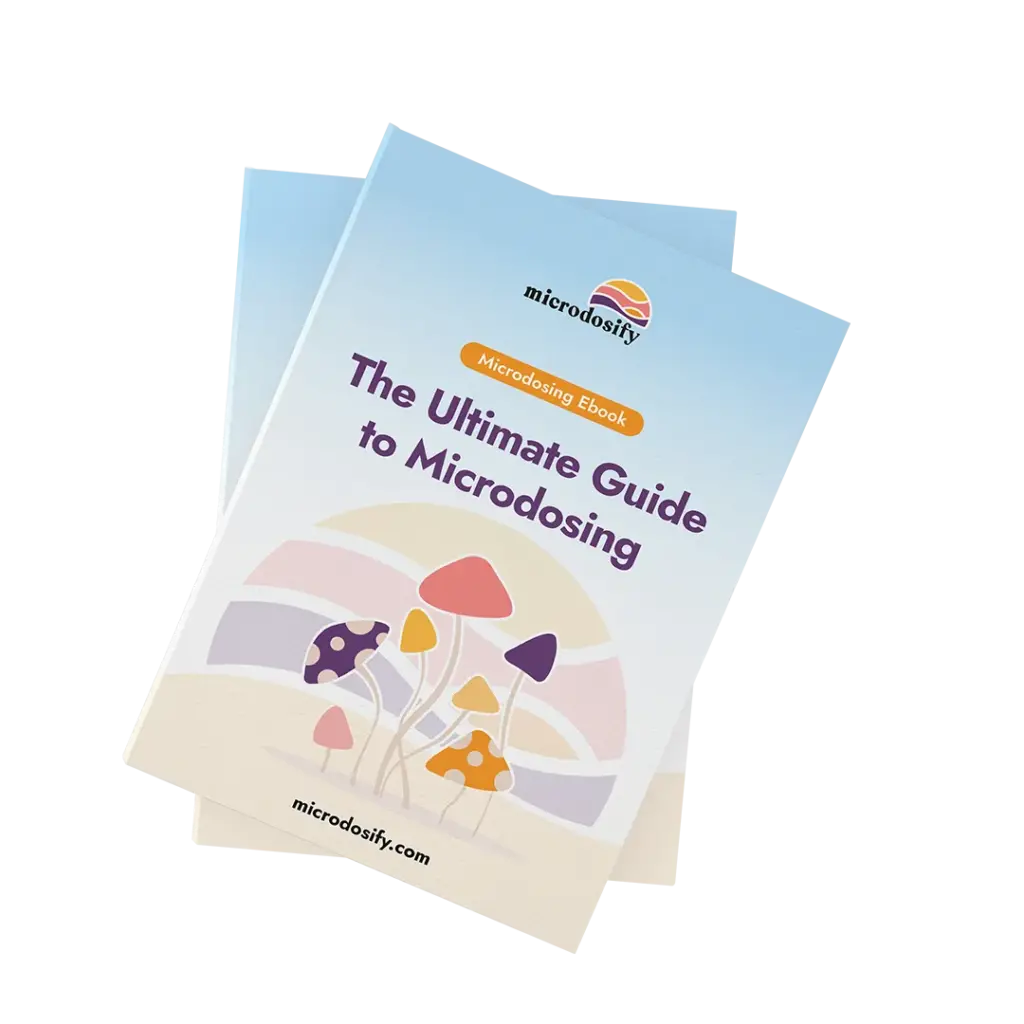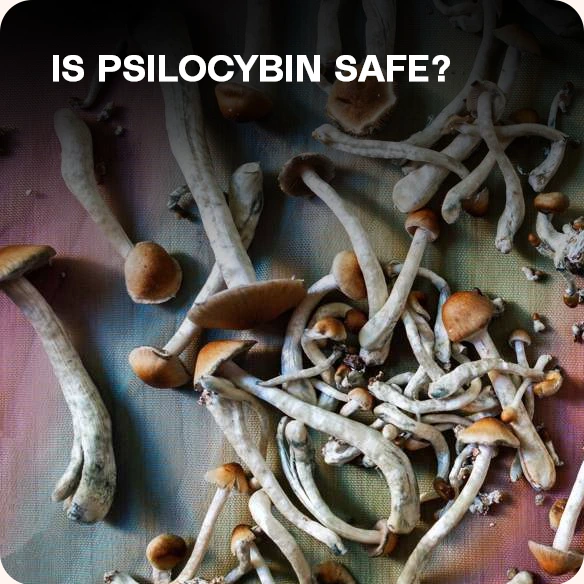The Fadiman Protocol is a structured microdosing regimen developed by psychologist Dr. James Fadiman that involves taking very low doses of psychedelic supplements like psilocybin and LSD every three days to enhance mood, creativity, focus, and overall mental well-being while minimizing tolerance and side effects.
Microdosing is part of a broader context involving psychedelic supplements, psychoactive supplements, psychoactive substances, and psychotropic substances, all of which can alter perception, mood, and consciousness.
In this article, you will learn:
- What the Fadiman Protocol is and who developed it
- How the protocol works and its recommended dosage and schedule
- The benefits and potential risks of following the protocol
- How to safely start the Fadiman Protocol with medical guidance and quality supplements
What is Microdosing?
Microdosing is an emerging practice that involves taking very low doses of psychedelic substances, such as lysergic acid diethylamide (LSD) or psilocybin, with the aim of enhancing mental health and cognitive function without inducing the full psychedelic experience.

Unlike traditional psychedelic therapy, which uses pharmacologically active doses to produce profound alterations in consciousness, microdosing psychedelics focuses on sub-perceptual doses that are intended to subtly improve mood, creativity, and overall well-being.
Interest in microdosing has grown rapidly, fueled by anecdotal reports of positive effects on conditions like treatment resistant depression, attention deficit hyperactivity disorder (ADHD), and post traumatic stress disorder (PTSD).
Some individuals report substantial and sustained decreases in depressive symptoms, reduced stress symptoms, and improved mental health outcomes.
These effects of microdosing are thought to be linked to changes in the brain’s default mode network and increased levels of brain derived neurotrophic factor (BDNF), which supports neuroplasticity and cognitive flexibility.
Despite these promising accounts, the scientific understanding of microdosing remains limited. Most available evidence comes from small-scale studies or self-reported experiences, and the role of placebo effects cannot be underestimated.
Positive expectations often contribute to perceived benefits, making it essential for researchers to conduct placebo controlled microdosing studies and randomized double-blind trials.
These rigorous clinical trials are necessary to determine whether the observed improvements are truly due to the psychedelic substance or are influenced by expectancy and other psychological factors.
Another complexity in microdosing research is the potential for paradoxical psychological effects, where very low doses of psychedelics might produce unexpected or even opposite outcomes compared to higher doses.
This highlights the need for systematic study and careful monitoring of both beneficial and adverse events, especially in clinical populations with major depressive disorder, obsessive compulsive disorder, or bipolar disorder.
Looking ahead, future research on microdosing psychedelics holds significant promise for developing new treatments for psychiatric conditions that are resistant to conventional therapies.
Early clinical trials suggest that psilocybin produces substantial and sustained decreases in depressive symptoms, offering hope for those with limited options.
However, advancing this field responsibly requires ongoing verification, successful waiting for larger studies, and a commitment to safety and scientific rigor.
In summary, while microdosing psychedelics may offer positive effects and improved mental health outcomes for some, it is crucial to approach this practice with caution.
The interplay between psychedelic doses, placebo effects, and individual expectations is complex, and only through well-designed, placebo-controlled trials can the true therapeutic potential of microdosing be fully understood.
As research continues, microdosing may become an important tool in the future of psychedelic therapy and mental health treatment.
What is the Fadiman Protocol?
The Fadiman Protocol is a popular method of psychedelic microdosing that prescribes taking sub-perceptual doses of supplements such as psilocybin and lysergic acid diethylamide (LSD) on a specific schedule to improve mental health, creativity, and productivity.

Unlike other psychiatric medications, microdosing is often perceived as a way to enhance well-being and insight with fewer side effects and less stigma.
While the protocol primarily focuses on psilocybin and LSD, other psychedelic supplements such as MDMA, mescaline, ketamine, ibogaine, and DMT have also been explored for microdosing, though research on these is limited.
The protocol is designed to avoid full psychedelic experiences, which at higher doses can involve intense altered states of consciousness and ego dissolution, distinguishing microdosing from full dose psychedelic experiences.
Who Developed the Fadiman Protocol?
James Fadiman, a psychologist with a Ph.D. from Stanford University and a pioneer in psychedelic research, developed the protocol based on his decades of study into the therapeutic and cognitive benefits of microdosing psychedelic supplements.

Fadiman designed this protocol to harness the beneficial effects of very low doses of psychedelic substances without inducing full psychedelic experiences, aiming to improve focus, emotional balance, and creativity safely.
What is the Purpose of the Fadiman Protocol?
The protocol’s primary purpose is to provide a consistent, controlled approach to microdosing that enhances emotional well-being, cognitive function, and creativity, potentially aiding conditions such as anxiety, depression, and post traumatic stress disorder (PTSD).
The protocol involves repeated doses of psychedelics at lower doses than those typically used recreationally or therapeutically, aiming to minimize perceptible psychedelic effects while still influencing psychological and physiological measures.
By stimulating neuroplasticity and serotonin receptor pathways through repeated low doses, the protocol supports improved mood, problem-solving skills, and sensory perception without significant adverse events.
How Does the Fadiman Protocol Work?
The Fadiman Protocol uses a dosing schedule of taking very low, sub-perceptual doses of psychedelic supplements every three days.
These doses are intentionally set below the threshold for noticeable effects and are much lower than a typical recreational dose.
This spacing helps prevent tolerance buildup and allows the user to integrate and reflect on the effects of each dose.
This regimen maintains consistent positive outcomes such as increased positive mood, mental clarity, and creativity while minimizing the risk of adverse events or diminished effects.
How to Follow the Fadiman Protocol?
Following the Fadiman Protocol requires adherence to a specific dosage and schedule of microdosing, careful tracking, and medical consultation to ensure safety and optimize benefits.

Unlike psilocybin treatment or psilocybin assisted therapy, which involve higher doses administered in structured therapeutic settings for clinical applications such as depression or anxiety, microdosing uses sub-perceptual amounts and is not intended as a substitute for these evidence-based therapeutic approaches.
What is the Recommended Dosage for the Fadiman Protocol?
The protocol recommends consuming a very low dose of psilocybin mushrooms—typically 0.1 to 0.3 grams of dried mushrooms—or 10 to 20 micrograms of LSD, which are below the pharmacologically active dose that causes noticeable psychoactive effects.
Staying within these sub-perceptual limits is essential to experience improved mental health outcomes and avoid significant acute subjective effects or serious adverse events.
How Often Should the Fadiman Protocol be Followed?
Dosing every three days is the core of the protocol. This schedule:
- Prevents tolerance to the supplement
- Allows time for integration and reflection on effects
- Minimizes side effects and promotes long-term sustainability
What is the Ideal Time to Take Microdosing Psychedelics?
Taking microdoses in the morning aligns with natural circadian rhythms and supports enhanced productivity and focus throughout the day.
What Are the Benefits of the Fadiman Protocol?
The protocol offers benefits such as improved mood, increased creativity, enhanced focus, and emotional well-being, supported by both anecdotal reports and emerging clinical trials.

Research and anecdotal accounts have described the effect of microdosing on various behavioral and psychological outcomes, including decreased anxiety, improved cognitive performance, and changes in neurobiological measures.
Many positive claims about microdosing are based on self-reported experiences, which may be influenced by individual differences such as trait absorption, highlighting the need for further scientific investigation into these effects.
Improved Mood and Creativity
Users often report significant and sustained decreases in depressive symptoms and anxiety, along with boosts in creativity and divergent thinking, aligning with findings from placebo controlled microdosing studies.
Increased Focus and Productivity
Microdosing under the Fadiman Protocol can improve attention deficit hyperactivity disorder (ADHD) symptoms and help individuals maintain positive mood and mental clarity, which supports higher productivity.
Enhanced Emotional and Mental Well-being
The protocol has shown promise in clinical populations with treatment resistant depression and PTSD, improving emotional regulation and reducing stress symptoms.
Reduced Anxiety and Treatment Resistant Depression Symptoms
Substantial and sustained decreases in anxiety and depressive symptoms have been observed in healthy human volunteers and clinical populations following microdosing regimens similar to the Fadiman Protocol.
What Are the Risks of the Fadiman Protocol in Clinical Trials?
While generally safe when followed correctly, risks include potential adverse events such as anxiety, overstimulation, or tolerance if dosing guidelines are not observed.

Psychedelic treatments have also been studied in patients with life threatening cancer, where safety and therapeutic potential are critical considerations.
In clinical research, active placebo controls are sometimes used to improve blinding and safety by mimicking some perceptual effects without the full pharmacological experience.
Legal risks also exist due to the controlled status of psychedelic supplements. Consulting healthcare professionals and sourcing high-quality, tested supplements reduce these risks.
How to Get Started with the Fadiman Protocol?
Starting the Fadiman Protocol involves:
- Consulting a medical professional to assess suitability and avoid interactions with psychiatric medications, including discussing potential interactions with other psychiatric medications
- Sourcing pure, tested psilocybin or LSD supplements
- Keeping a detailed journal to track dosage, effects, mood, and side effects

Remember that the placebo effect can influence perceived benefits, so careful self-monitoring is important to distinguish true effects from those driven by expectations.
Consult with a Medical Professional
Medical consultation ensures the protocol fits your mental health profile and avoids contraindications, especially for individuals with bipolar disorder, obsessive compulsive disorder, or other psychiatric conditions.
Source High-Quality Psychedelic Substances
Obtaining verified, high-quality supplements is critical for safety and efficacy. Laboratory-tested mushrooms or pharmaceutical-grade LSD reduce the risk of contamination and dosage uncertainty.
Keep a Journal to Track Progress
Recording dosage, timing, and subjective effects using tools like the Tellegen Absorption Scale helps monitor improvements and detect any adverse events early.
For more detailed information on microdosing benefits and protocols, visit the Microdosify community resources.
Summary
The Fadiman Protocol provides a structured, science-informed approach to microdosing psychedelics such as psilocybin or LSD — emphasizing consistency, mindfulness, and safety.

Developed by psychologist Dr. James Fadiman, the protocol’s three-day cycle (dose, rest, rest) is designed to deliver sub-perceptual cognitive and emotional benefits while preventing tolerance and minimizing risk.
Emerging research and widespread anecdotal reports suggest that when practiced responsibly, the protocol can promote improved mood, heightened creativity, enhanced focus, and emotional balance — offering potential relief for conditions such as anxiety, depression, and PTSD.
However, these benefits remain preliminary, with placebo effects and individual variations still influencing outcomes.
For those looking to apply the Fadiman Protocol safely, Create Microdosing Capsules support creativity and cognitive clarity, while Calm Microdosing Capsules promote emotional stability and stress reduction — both aligning with Fadiman’s goal of subtle, balanced enhancement.
Ultimately, the Fadiman Protocol represents a promising yet experimental frontier in mental wellness — one that requires medical consultation, reliable sourcing, and careful self-monitoring to ensure both safety and efficacy.
If you’re new to microdosing or want personalized help building your schedule, consider booking a 1-Hour Coaching Call with a certified Microdosify Coach. Through expert guidance, you can learn:
- How to apply the Fadiman Protocol safely and effectively
- How to track progress and integrate mindfulness
- How to tailor your microdosing journey to your lifestyle and goals
Begin your mindful microdosing practice with clarity and confidence — explore Microdosify’s microdosing capsules and connect with a coach today to experience the balanced benefits of the Fadiman Protocol.
Frequently Asked Questions
What is the Fadiman Protocol?
The Fadiman Protocol is a method of microdosing psychedelics, specifically psilocybin, developed by Dr. James Fadiman. It involves taking a small, sub-perceptual dose of psychedelics on a regular schedule to improve overall well-being.
How does the Fadiman Protocol work?
The Fadiman Protocol is based on the idea of taking a small dose of psychedelics or other psychedelic drugs every three days. This allows for a subtle shift in perception and mood without experiencing a full psychedelic trip. It is believed that this method can enhance creativity, focus, and emotional well-being.
What are the benefits of following the Fadiman Protocol?
Many people who have followed the Fadiman Protocol report improved mood, increased creativity, and a greater sense of self-awareness. It has also been shown to help with anxiety, depression, and PTSD.
Is the Fadiman Protocol safe?
The Fadiman Protocol is generally considered safe when followed correctly. However, as with any use of psychedelics, it is important to approach with caution and be mindful of your own physical and mental well-being.
Can anyone follow the Fadiman Protocol?
The Fadiman Protocol can be followed by anyone, but it is important to consult with a healthcare professional before beginning any new treatment. It is not recommended for those with a history of mental health issues or those who are pregnant or breastfeeding.
How can I learn more about the Fadiman Protocol?
To learn more about the Fadiman Protocol and how it may benefit you, it is recommended to do your own research and consult with a healthcare professional. The Microdosify community also offers resources and support for those interested in microdosing and the Fadiman Protocol.



 11 min read
11 min read
